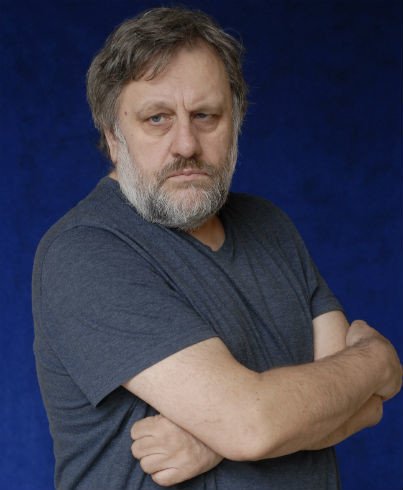Three decades after the collapse of communism in eastern Europe, there's now unease about liberal capitalism. It's benefitting the global Right more than leftists.
Today, it’s commonplace to emphasize the “miraculous” nature of the fall of the Berlin Wall, 30 years ago, this month. Back then, it was like a dream come true, something unimaginable even a couple of months earlier. Soon after, the Communist regimes collapsed like a house of cards.
Who, before then, in Poland could have imagined free elections with Lech Walesa as president? However, one should add that an even greater “miracle” happened only a couple of years later: the return of the ex-Communists to power through free democratic elections. Walesa was soon totally marginalized and much less popular than General Wojciech Jaruzelski who, a decade and a half earlier, crushed Solidarity with the military coup d’etat.
At this point, one usually mentions “capitalist realism”: East Europeans simply didn’t possess a realistic image of capitalism. They were full of immature utopian expectations. The morning after the enthusiasm of the drunken days of victory, people had to sober up and undergo a painful process of learning the rules of the new reality, i.e., the price one has to pay for political and economic freedom. It was, effectively, as if the European Left had to die twice: first as the “totalitarian” Communist Left, then as the moderate democratic Left which, since the 1990's, has been gradually losing ground.
Also on rt.com 'System deadlock': Joker artistically diagnoses modern world's ills – ZizekHowever, things are a little bit more complex. When people protested against the Communist regimes in Eastern Europe, what the large majority had in mind was not capitalism. They wanted social security, solidarity, and justice. They wanted the freedom to live their own lives outside state control and to come together and talk as they pleased. They wanted a life of simple honesty and sincerity, liberated from primitive ideological indoctrination and the prevailing cynical hypocrisy.
In short, the vague ideals that inspired the protesters were to a large extent taken from the socialist ideology itself. And, as we learned from Freud, what is repressed often returns in a distorted form – in our case, what was repressed from the dissident imaginary returned in the guise of rightist populism.
No wonder how, after a long time of preaching openness and globalization, developed countries are now into building new walls, because the new formula is free movement of commodities instead of free movement of people.
In his interpretation of the fall of East European Communism, Jurgen Habermas proved to be the ultimate Left Fukuyamaist, silently accepting that the existing liberal-democratic order is the best possible, and that, while we should strive to make it more just, etc., we should not challenge its basic premises.
This is why he welcomed precisely what many leftists saw as the big deficiency of the anti-Communist protests in Eastern Europe: the fact that these protests were not motivated by any new visions of the post-Communist future – as he put it, the central and eastern European revolutions were just what he called “rectifying” or “catch-up” revolutions: their aim was to enable central and eastern European societies to gain what the western Europeans already possessed. In other words, to return to European “normality.”
Also on rt.com Today's protests indicate the scale of troubles in our paradise (by Slavoj Zizek)However, the likes of the Yellow Vests, and other similar protests, are definitely NOT catch-up movements. They embody the weird reversal that characterizes today’s global situation. The old antagonism between “ordinary people” and the financial-capitalist elites is back with a vengeance, with “ordinary people” exploding in protest against elites accused of being blind to their suffering and demands.
Yet, what is new is that the populist Right proved to be much more adept in channeling these explosions in its direction than the Left. Alain Badiou was thus fully justified to say apropos the Yellow Vests: “Tout ce qui bouge n'est pas rouge” – “all that moves (creates unrest) is not red.”
Today’s populist Right participates in the long tradition of popular protests which were predominantly leftist. Some revolts today (Catalonia, Hong Kong) can even be considered a case of what is sometimes called the revolts of the rich – remember that Catalonia is, together with Basque country, the richest part of Spain and that Hong Kong is per capita much wealthier than China. There is no solidarity with the exploited and poor of China in Hong Kong, no demand for freedoms for all in China, just the demand to retain one’s privileged position.
Here, then, is the paradox we have to confront: the populist disappointment at liberal democracy is the proof that 1989 and 1990 was not just a catch-up revolution. Instead, it was about something more than achieving liberal-capitalist 'normality'. Freud spoke about Das Unbehagen in der Kultur ( the discontent/unease in culture); today, 30 years after the fall of the Wall, the ongoing new wave of protests bears witness of a kind of Unbehagen in liberal capitalism, and the key question is: who will articulate this discontent? Will it be left to nationalist populists to exploit it? Therein resides the big conundrum facing the Left.
Subscribe to RT newsletter to get stories the mainstream media won’t tell you.
The statements, views and opinions expressed in this column are solely those of the author and do not necessarily represent those of RT.

